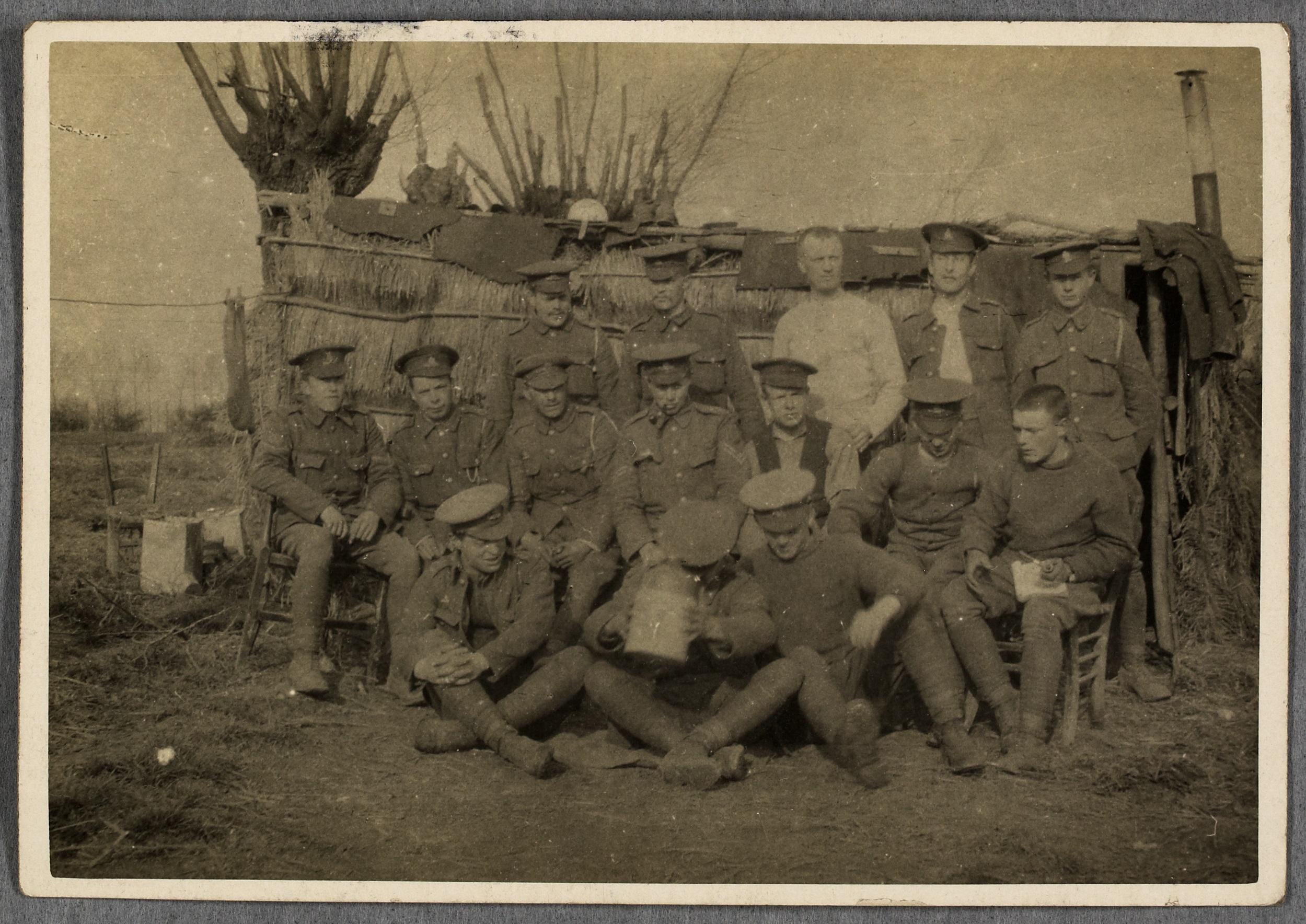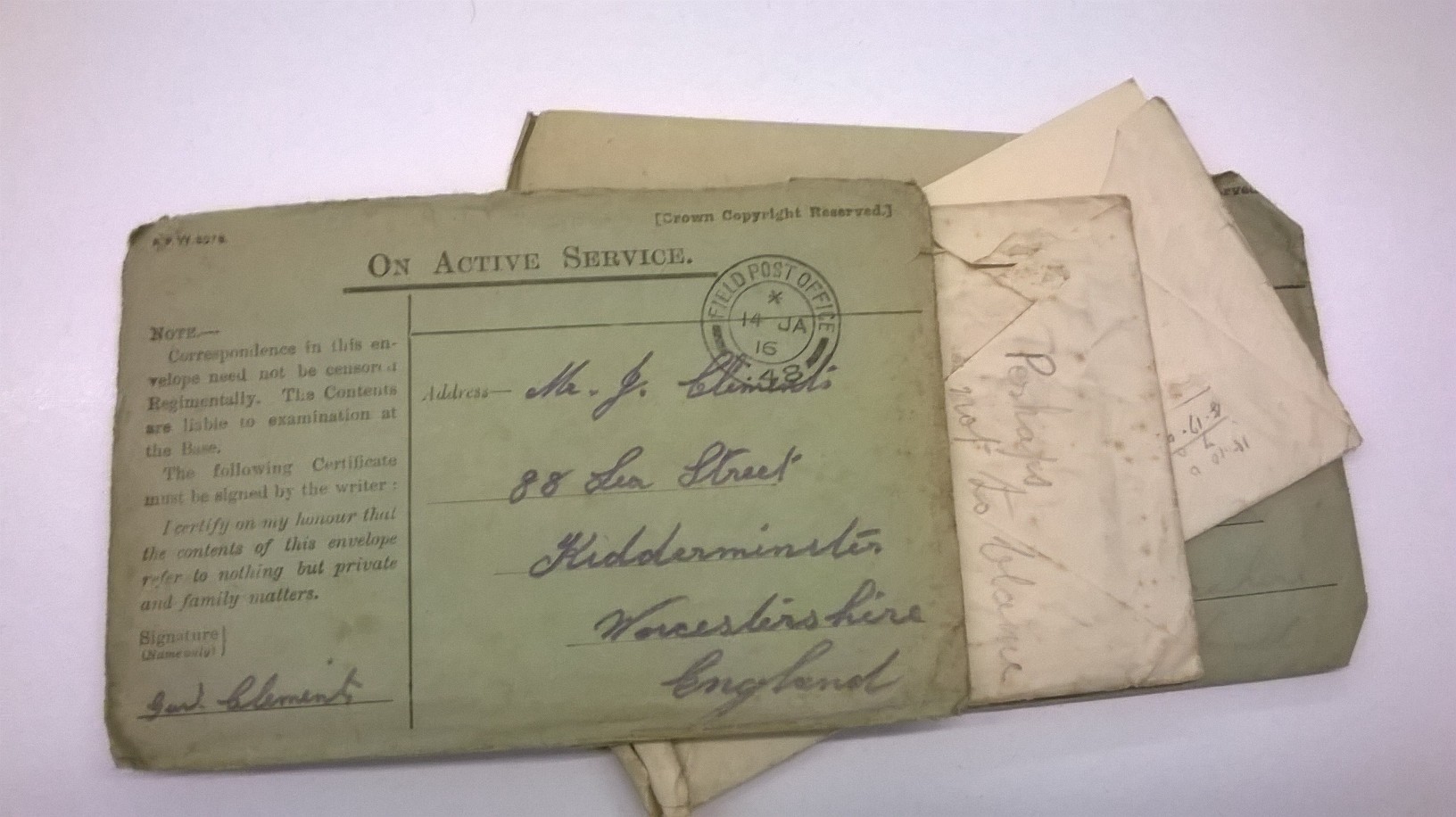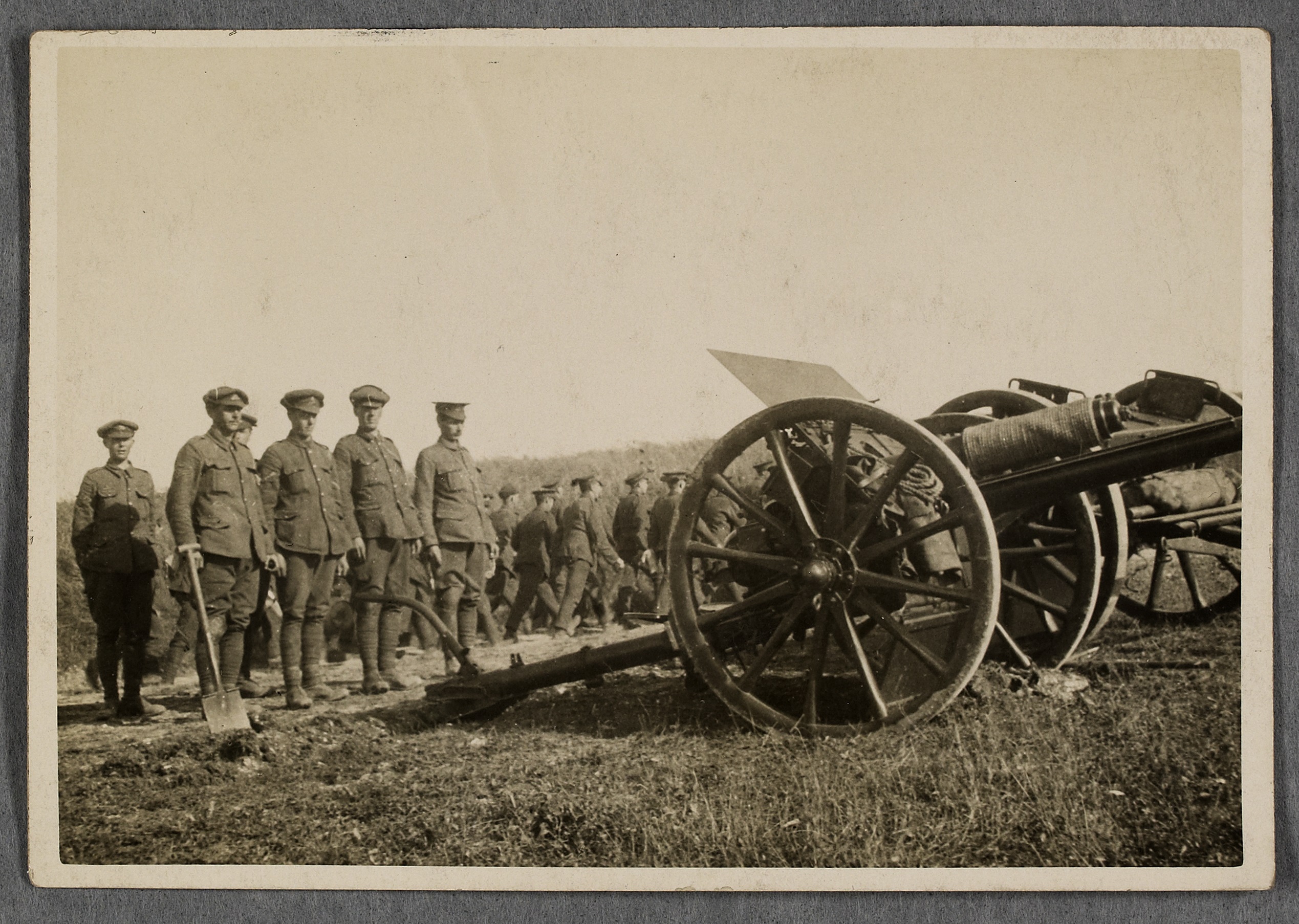The WWI Letters of Bert Clements – part 4
- 14th December 2019
This is the fourth and final of our compilations of the letters of Gunner Bert Clements, which were read by Naomi Taylor as part of the Worcestershire World War One Hundred Project. It meant we were able to share them more easily via social media to a wider audience, and also use them with school children in the classroom.

A photo in the collection alongside the letters. Is Bert one of the men shown?
Naomi read them out, and then edited the films, in three lots.We asked her for her thoughts about Bert after reading the 21 letters.
“I felt very privileged to be able to look at Bert’s letters and read them aloud. It is a strange thing to read out someone’s thoughts which once went to their family in times of trouble. It feels very personal and yet it is amazing to be able to share them with other people, to show how an individual coped during that time and the little things that can be so familiar to us today, despite it being a different time. We so often see the facts and figures – the statistics – of the world wars, and it can be so easy to forget the individual. Here is a wonderful example of a family keeping in touch over many miles, in such scary times. Personally, I believe it’s so important to look at such examples, to remind us what individuals went through, and are still going through, that we might have our freedom today.”
19th letter – 6th July 1916 – Bert writes to his father a few days after The Battle of the Somme begins, to reassure his Dad that he’s ‘going on alright’. He says he’s taking an active part, being in the line for 2 days at a time, and they’re at the stiffest part of the line. Soldiers are returning to British lines with German souvenirs such as helmets. Bert asks his mother to send an old waistcoat out to him.
20th letter – 19 July 1916 – Nineteen days into the battle of the Somme Bert writes home to assure his father he’s ‘going on alright’. He mostly talks about events back home, such as family’s new house, and his Dad’s win the bowls semi-final. As he wishes his dad good luck in the final he compares the situation in France to a final, and says he can’t see it lasting much longer. He’s sent home a paper which was a note given to a men in appreciation for their work on the big push. He ends with a request for chocolate and fags!
21st Letter – 27th January 1917 – In the last of Bert’s letters which we have in the archive he writes one of his longest letters. He’s in the best of health – apart from his feet due to the really cold weather.
His unit are moving about from place to place, and it is hard to post letters. He says it is stiff winter, worse than previous years, with cold so intense. The boots get frozen overnight so they need to use them as pillows to stop them freezing or else thaw them by a fire before parade.
He’s wanting a rest, as they haven’t had much time away from the front since they got out there almost 2 years ago.
He asks his father to send him something to eat. It is hard out there, and although they are paid 10 francs a fortnight it only lasts 1-3 days.
This is the final letter from Bert we have in the archives (Worcs Archive & Archaeology Service). We know he survived the war but his other letters don’t appear to have been saved by his Dad. From his service record we can see that he spent mid 1917 onwards in Italy, and for a while was in hospital, although can’t make out the reason. Just before being demobbed in 1919 he suffered from tonsillitis. He then returned to Kidderminster, marrying a few years alter. He died in 1974, age 79, after which the letters were passed to the archives so others could read them. There are a number of photos in there too, and a couple of diaries, but we don’t know if Bert is on any of the photos or if they are ones sent o him by friends.
To finish with, we found this poem written out by Bert Clements among his 21 letters. At first we assumed it must have been written by him as it was in his hand, but as we researched it we found it was written by Bransby Williams, and was popular with soldiers (it was read out by a ex.soldier on the BBC series The Last Tommies). We don’t know why he wrote out this particular poem and sent it back to his Dad. Maybe it was used or he read it after the death of a close friend, and it resonated. However we’ll never know. It is quite a powerful poem and summed up the feelings of many soldiers, probably including Bert.


Post a Comment